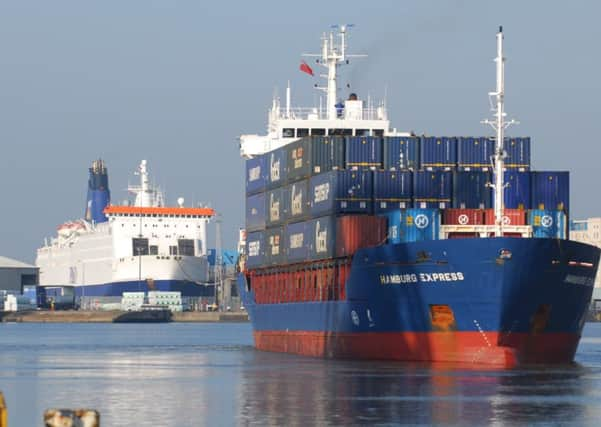Victoria Hewson and Radomir Tylecote: We must stop negotiating with ourselves over Brexit


EU figures like Jean-Claude Juncker and Michel Barnier have criticised a lack of clarity in the UK’s position. But when you look back at the content of the Article 50 notice, it clearly set out the Government’s intentions.
The UK would be seeking a “deep and special partnership” as the EU’s “closest friend and neighbour”. The UK “does not seek membership of the single market”; we needed an early agreement on citizens’ rights, and implementation periods. The Article 50 letter followed May’s Lancaster House speech of earlier last year, which said that Brexit meant ending European Court of Justice jurisdiction and having the freedom to sign trade agreements outside the EU.
Advertisement
Hide AdAdvertisement
Hide AdAnd this is what is now reflected in the draft withdrawal agreement. So have we wasted the past 12 months rehearsing old arguments? Well, not quite. The draft withdrawal agreement includes detailed provisions on citizens’ rights and the financial settlement. There will also be a transition period lasting until the end of 2020.
During the transition period, it is intended that not much should change, except that the UK will no longer have a vote in the European Council or MEPs in the European Parliament.
This buys time to negotiate the future relationship and for businesses to prepare for trading with the EU from outside the single market and customs union.
Not everyone will be happy that free movement of people will continue until 2021, but the certainty that the agreement gives to British citizens in the EU and EU citizens in Britain is welcome.
Advertisement
Hide AdAdvertisement
Hide AdRegrettably, but perhaps unavoidably, we will also remain subject to the Common Fisheries Policy until the end of transition. The Irish border remains unresolved, as the UK government is rightly resisting the EU’s insistence on a fallback solution of Northern Ireland staying in a regulatory zone with the EU. More positively, we can negotiate free trade agreements with other countries during transition – an important step towards an independent trade policy.
It is vital that we do not continue to be held back by internal squabbles, rehashing old arguments about Brexit itself. Latest opinion polls suggest that while not many people have changed their mind about how they voted, a clear majority of people just want the Government to get on with delivering Brexit, and there is little support for another referendum. There is lots to be done – much of it within our government’s powers to do without agreement from the EU.
Readying our ports and airports should be a priority. There are great opportunities for our manufacturers and port cities in Yorkshire. But for investment in ports like Hull and Goole, there needs to be certainty from the Government.
With the country heavily reliant on Dover, the swathes of land available for development around the Port of Hull present a serious growth prospect for the region.
Advertisement
Hide AdAdvertisement
Hide AdMeanwhile the creation of free ports, which allow the waiving of import tariffs for the components of exported goods, has already been mooted.
We also need businesses to join in debates about our future regulatory policy. This is not about a bonfire of red tape or getting rid of workers’ rights (in most cases we already have better employment protections than the EU mandates).
It is about what we will be able to do differently, and better, when we are out of the EU. A good Brexit will take time and hard work. All the more reason not to waste the next 12 months negotiating with ourselves.
Victoria Hewson and Radomir Tylecote are economists and members of the Trade and Competition Unit at the Institute of Economic Affairs.